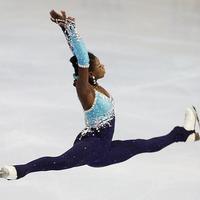
Apr 21, 2016
At the 1998 Olympics in Nagano, Japan, one athlete pulled a move that, so far as we know, no one else had ever done in all of human history.
Surya Bonaly was not your typical figure skater. She was black. She was athletic. And she didn’t seem to care about artistry. Her performances – punctuated by triple-triple jumps and other power moves – thrilled audiences around the world. Yet, commentators claimed she couldn’t skate, and judges never gave her the high marks she felt she deserved. But Surya didn’t accept that criticism. Unlike her competitors – ice princesses who hid behind demure smiles – Surya made her feelings known. And, at her final Olympic performance, she attempted one jump that flew in the face of the establishment, and marked her for life as a rebel.
This week, we lace up our skates and tell a story about loving a sport that doesn’t love you back, and being judged in front of the world according to rules you don’t understand.
Produced by Matt Kielty with help from Tracie Hunte. Reported by Latif Nasser and Tracie Hunte
Special thanks to the Sky Rink at Chelsea Piers, the Schwan Super Rink, Richmond Training Center, Simon Bowers of Bowers Audio Service, Vanessa Gusmeroli, Phil Hersh, Allison Manley, Randy Harvey, Rob Bailey and Lynn Plage, Michael Rosenberg and Linda Lewis
If you heard "On the Edge" and you're looking to fall in love with figure skating all over again, start here: http://www.radiolab.org/story/here-are-skating-routines-we-cant-stop-watching/